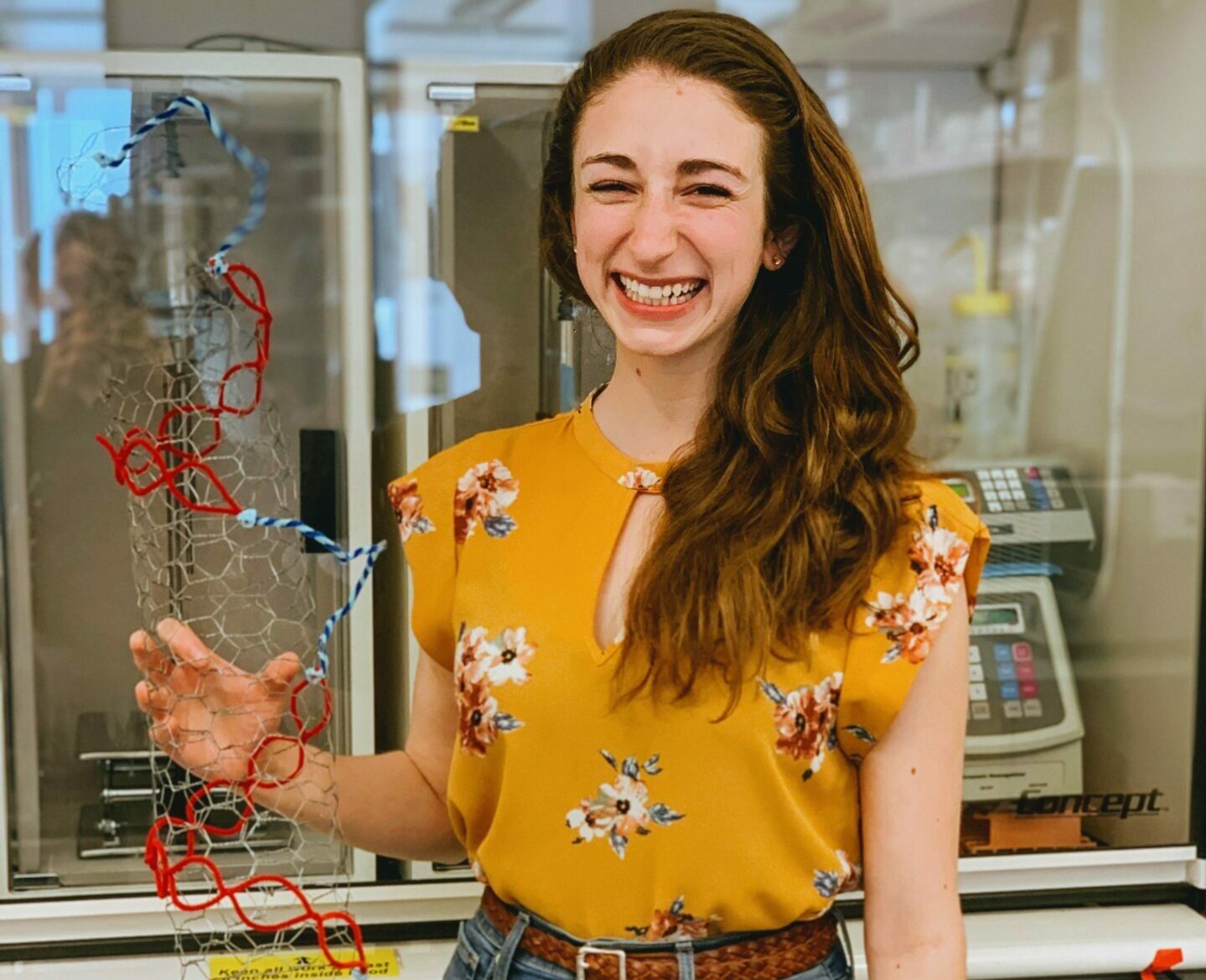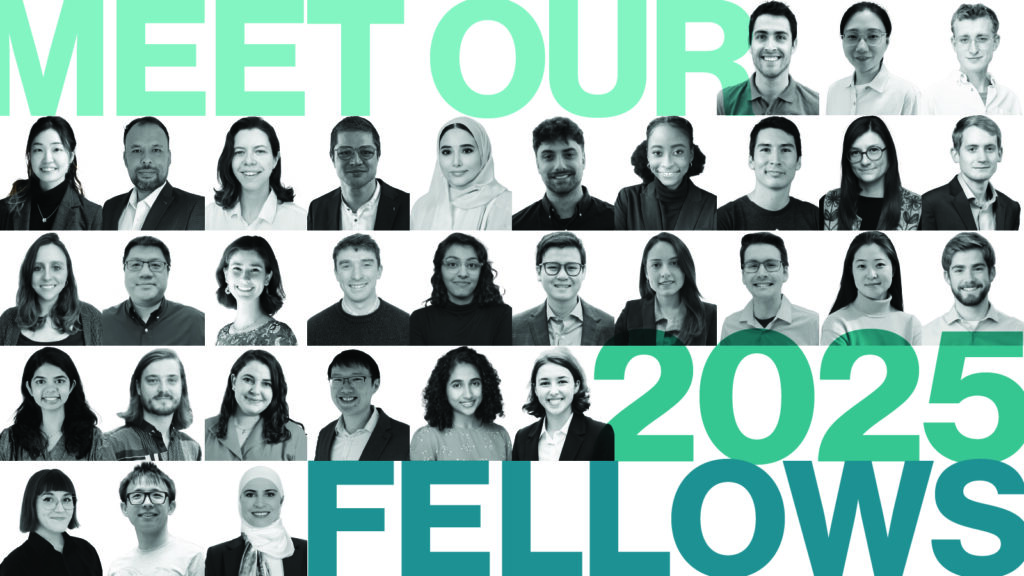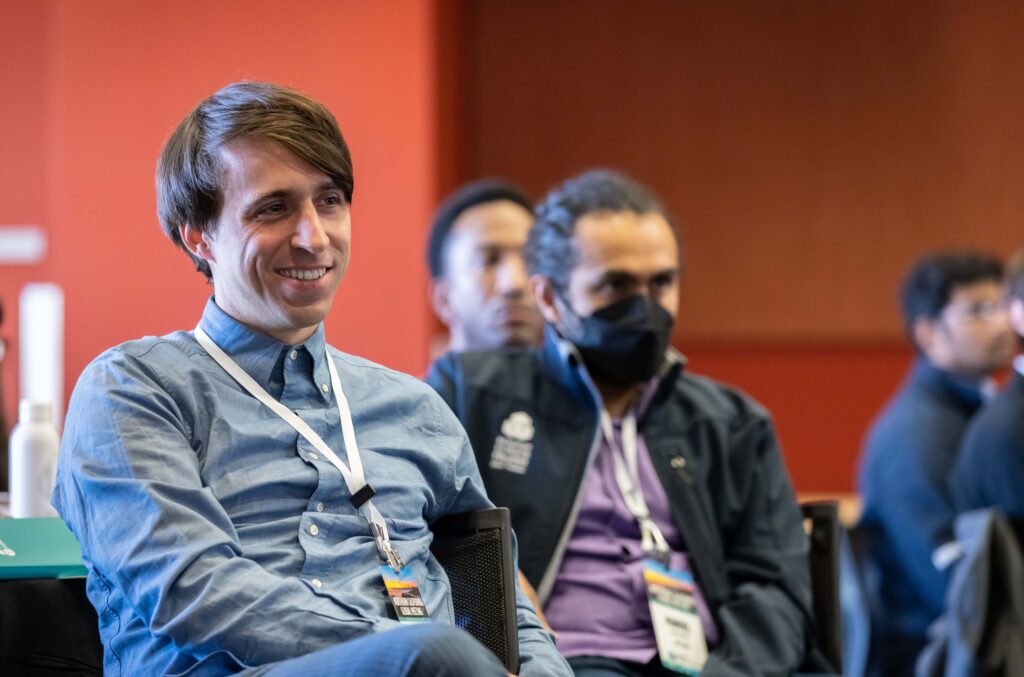Science is not a zero-sum game – quite the opposite – the more people and collaboration involved, the more diverse and creative ideas we will have to grow the research into something impactful. As the diversity of our scientific community broadens, we create more opportunities for young scientists to see themselves reflected in their mentors and be empowered to pursue far-reaching STEM careers. I recognize the outstanding women in science who, as my advisors and colleagues, have shaped me as a scientist and person.
I decided I wanted to work with Professor Markita Landry during my PhD at the University of California, Berkeley, while sitting in her proposed research seminar. Markita was a new faculty member at the time, with exciting ideas on how we could build optical nanotechnologies to interface with and probe biological systems, including plants and the brain. It was only after joining her lab that I realized the benefits of having a woman mentor as my PhD advisor. Markita was an advocate for me when I did not realize I needed one, emboldening me to apply for opportunities I felt unqualified for. She built an incredible lab environment where I had numerous other women mentors and close friends from around the world.
I am eager to have more young scientists see themselves reflected in their mentors and feel empowered to pursue STEM careers.
As a graduate student, she encouraged me to attend conferences and events such as lunches with visiting faculty, allowing me to meet other fantastic and successful women in chemical engineering, including Professors Paula Hammond from MIT and Sharon Glotzer from the University of Michigan. Markita supported the outreach initiatives I engaged with during graduate school. This led to a particularly poignant moment for me in which my Bay Area Scientists in Schools (BASIS) outreach team of five women engineers walked into a 3rd-grade classroom, and a student eagerly exclaimed: “Wow, it’s all-girl scientists!”. This is showing the next generation images of themselves in STEM.
The lessons I learned from my mentors during my PhD guided the initial steps of my journey as a Schmidt Science Fellow. When looking for a postdoctoral lab, I was immediately drawn to Professor Li-Huei Tsai’s research at MIT. Li-Huei is the leader of a prolific Alzheimer’s Disease research lab at MIT and the director of the Picower Institute. Seeing her head these groups has shown me an entirely different style of leadership, but one that is similarly driven by a passion for science and discovery. Li-Huei’s confidence in commanding a room is striking. She is forward-looking, interested in, and supportive of new technologies that can be applied to study neuroscience, as I am proposing. Now, I am fortunate to be learning everything from the biology of neurodegenerative disease to stem cells from her and her lab. Li-Huei has been tremendously patient and supportive, recognizing what it entails to switch fields at this stage.
Being a woman mentor in science is not a monolith. Every mentor has a unique way of moving through the scientific world and guiding their mentees. The simple act of observing my mentors responding to different scientific circumstances and interpersonal scenarios has offered insightful lessons in how I conduct myself through the sometimes-delicate situations that arise in research. I am inspired by these women and the people in the labs that they have created and lead. More broadly, I am eager to have more young scientists see themselves reflected in their mentors and feel empowered to pursue STEM careers.



